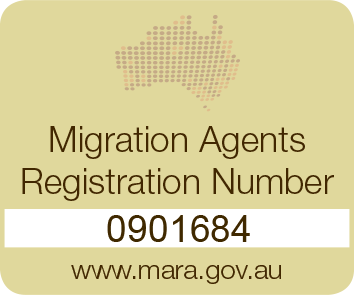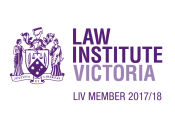Domestic violence is an incredibly common problem which unfortunately takes many forms and can be easily hidden from sight.
Recent statistics show that one out of three women in Australia have experienced domestic violence at the hands of their partners.
A sad reality of the long-winded Australian visa process is that many relationships can develop rapidly into abuse and violence and keep the visa applicant stuck between a rock and a hard place. Choosing between living in Australia and staying in your situation or getting to safety and potentially having to leave Australia is not an easy one to make by any means. Read on to find out what rights you may have on your visa.
It goes without saying but we must do more to eliminate it.
Domestic violence – It’s not just physical
When referring to ‘domestic violence’, most people associate this with physical abuse without realising that it also encompasses sexual violence, financial abuse, emotional abuse, social, spiritual or psychological abuse within a close relationship. It can take place in or out of the home and can take place in a variety of close relationship types, not just “romantic” partnerships.
You’re a victim but not sure what to do?
If you are struggling with domestic violence and feel that someone has an unhealthy hold over you, the first step is to recognise your situation, become aware and remove the blame from yourself.
Keep in mind that many perpetrators of domestic violence and abuse are skilled at shifting the blame onto their victims and playing down (or ignoring) the harm they are inflicting. This in turn, gaslights the victim into believing that the situation they are in is not that bad and/or is their own fault.
Once you can understand that the situation you are in is not okay, and is not your fault, you can then start to take steps to remove yourself from the grip of your abuser.
Talk to someone you trust
It is important that you take the time to talk to someone you trust about your situation.
If a friend or family member is not a good option for you, there are a huge range of services out there whom you can call on to help you.
There are many hotlines available who specialise in domestic violence and can counsel you and give you tools to help you take small steps forward.
Don’t rush – it may be more dangerous
Keep in mind – it might not be the safest option to move at lightning speed to get out of your current situation, but small calculated advancements may be the smartest way to go. (See below for a list of places who can help).
If possible, consult a domestic violence advice service to assist you with your safety plan.
Creating a safety plan
Many services offer assistance with creating a unique safety plan for your situation. This involves discussing where you are at and what you need to prepare in order to leave safely (if necessary).
1800RESPECT (1800 737 732) is a domestic violence helpline which will assist you with a safety plan.
Here is a great video to give you an idea of what you may need:
If you’re in danger – call the police immediately
As always, if you are experiencing physical or sexual violence, emergency services will always be on hand to assist you in times of crisis. Call 000 if you can.
If English is not your first language, 000 will connect you to an interpreter.
You can also visit your nearest police station for assistance.
Helpful services
It is important to have spoken to someone or done a bit of research into what services are available when you do decide to leave. Refuges may be a great option for short-term accommodation and security as well as emotional support, practical help and it may be nice to realise you are not alone.
There are also a bunch of discreet apps available which can help you to understand what services are available in your area.
I’ve applied for a Visa – What happens to my application if I leave?
It really depends upon which visa you have applied for.
See DHA – Family Violence and your Visa and below for guidance.
Temporary Partner Visas (Subclass 820 & Subclass 309)
If you have applied for a Temporary Partner Visa, Subclass 820 onshore (i.e. in Australia) , and you can provide proof that you suffered from domestic violence prior to breaking up with your partner, you may still be granted your Partner Visa.
If you have applied for a Temporary Partner Visa offshore (outside Australia), your visa will not be granted if you leave your partner, even if you have suffered domestic violence.
Permanent Partner Visas (Subclass 801 & Subclass 100)
If you already hold a Temporary Partner Visa (Subclass 820 or Subclass 309), and you have proof of domestic violence, your Permanent Partner Visa may still be granted.
Prospective Marriage Visa
If you have been granted a Prospective Marriage Visa (Subclass 300) and you have not yet applied for a Subclass 820 Onshore Partner Visa, you will not be able to have a partner visa granted even if you have been the victim of domestic violence.
Have a look at our earlier blog article for some more details about breaking up during a Partner Visa application.
Other visa types
You may have a partner who has applied for a permanent residence visa and you have been included as the secondary applicant.
Unfortunately there are only a few occasions when you would be entitled to be granted permanent residence, even if you have left your partner.
You are the holder of a Subclass 457 or 482 (TSS visa)
If you partner included you in his/her Subclass 457/482 (TSS) visa application as a secondary applicant – and the application was granted, you are entitled to be included in the subsequent permanent residence application (e.g. a Subclass 186 Employer Nomination Temporary Residence Transition Stream (TRT)) application, even if you are no longer with your partner (and believe it or not even where your ex-partner has re-partnered!)
The New Regional Visas (Subclass 491 & Subclass 494) & Business Visas
The new regional Subclass 494 and Subclass 491 Visas provide a pathway to permanent residence via the Subclass 191 Visa after 3 years of living and working in a regional area.
You may also be able to transition to permanent residence even if you are a secondary 491/494 visa holder, provided you meet the requirements for the Subclass 191 Visa.
This would also apply to some of the business visas – however these transitions are outside the scope of this article. (Contact us though if you need more details about this type of transition).
Other places to get help if you are a victim of domestic violence:
Helplines
- Call 000
- 1800Respect
- Lifeline: 13 11 14
- Men’s Referral Service: 1300 766 491
- Mensline Australia: 1300 789 978
- Kids Help Line: 1800 551 800
- Translating and Interpreting Service: 131 450
- APPS
- Penda: Smartphone Financial and Personal Safety App
- Daisy: Smartphone Support Services App
- ARC App
Services
- White Ribbon Australia
- Relationships Australia: 1300 364 277
- STATE SPECIFIC HELP
- Domestic Violence Resource Centre Victoria
- NSW Domestic Violence Line: 1800 65 64 63
- Qld DV Connect Womensline: 1800 811 811
- VIC Safe Steps Crisis Response Line: 1800 015 188
- ACT 24/7 Crisis Line: 02 6280 0900
- Tas Family Violence counselling and Support Service: 1800 608 122
- SA Domestic Violence Crisis Line: 1800 800 098
- WA Women’s Domestic Violence 24h Helpline: 1800 007 339
Fact sheets
- Department of Social Services Fact sheet
- Addressing financial abuse
- Family Violence and Partner Visa Factsheet
Advice for friends
- Business Chicks – A great advice article for friends of those suffering domestic violence.
Need further assistance?
Contact us anytime.

 Points Test
Points Test
 Book Now
Book Now 


